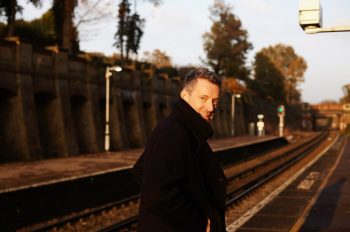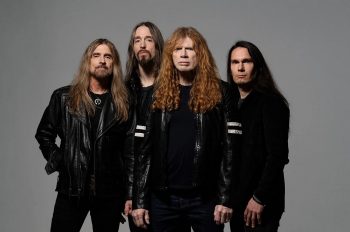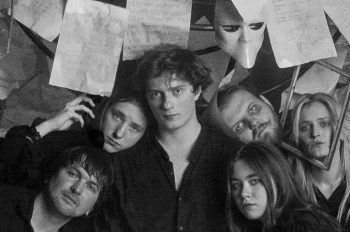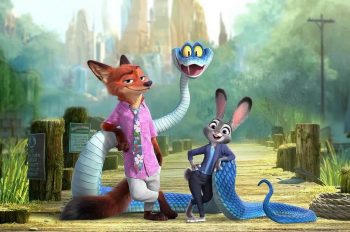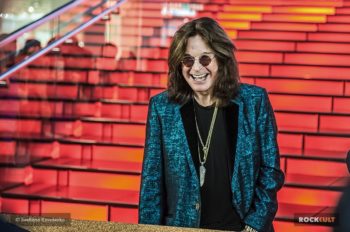The duo was formed by vocalist Neil Arthur and keyboardist Stephen Luscombe. Despite the excellent success of the singles and albums of the 80s, the band remained little known in the masses (it was preceded by Depeche Mode and the like), but as in those days, and now, it is highly appreciated by fans of less commercial and more serious electronics.
In the mid-80s, the band decided to split up, and the next album Blanc Burn, which marked the reunion of the band, was released in 2011. However, after the supporting tour, Stephen was forced to leave Blancmange because of serious health problems, and since then the project is run by Neil.
The last few years he’s been active as never before, and for two years Neil have released 3 albums, and the fourth, Unfurnished Rooms, came out the other day.
In addition, this summer we heard the album First Light by the project Fader, where Neil teamed up with another prominent electronic musician, Ben Edwards (Benge).
Rockcult: Can you tell about new Blancmange’s album Unfurnished Rooms? How different it will be from previous albums?
Neil Arthur: It’s very electronic. Differences will be at… I mixed the album with Benge. Over the last few years we’ve been working together on our joint project Fader. I love his music, and I thought that it would be great to mix the album with Benge, and we mixed it with him.
We replaced some of the sounds that I’d created on VST’s with more real, analog synth. So it has strong elements of real and old analog sound (laughs).
Сomparing to Commuter 23, which is the last album, and the previous one, Nil By Mouth, Unfurnished Rooms is the collection of structured songs with lyrics. Commuter 23 was a mix of structured songs and instrumentals, and Nil By Mouth was pure instrumental.
Rockcult: Why did Blancmange break up for such a long time?
Arthur: Well, we stopped working together in 1986 or 1987, and the reason we stopped was because…it wasn’t any fun. And I spoke to Stephen when we did a charity concert with Greenpeace at The Royal Albert Hall. The cause was fantastic, but the feeling it was being on the stage playing wasn’t what I wanted to do anymore. I spoke to Stephen about it, and he completely agreed. And we stopped, and both of us were doing film music and TV music. So we continued working on music, but not in band. Also we carried on writing, but not together.
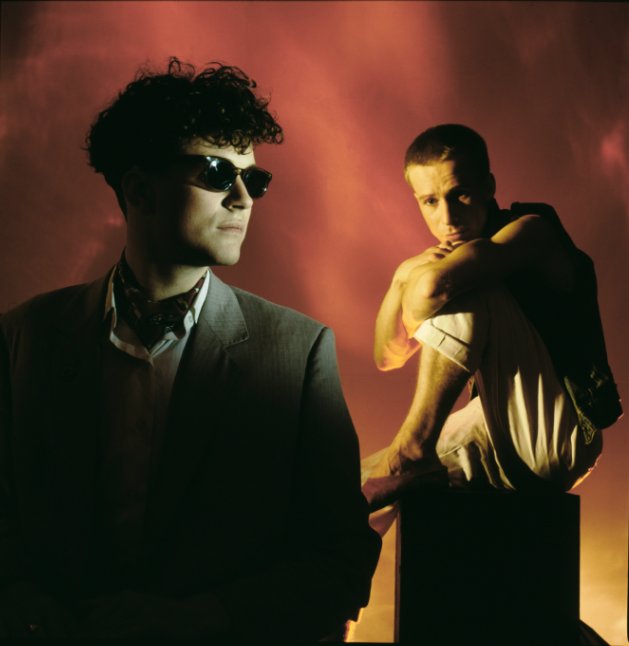
Фото - Simon Fowler →
Rockcult: Whether something has changed in your creative process, compare your work with Stephen in the 70’s and 80’s and the modern period?
Arthur: I think that the idea still come from the same place. I don’t know the formula, they just come from things I hear, I see, that I think about.
In terms of technologies it’s completely different.
For example, when we started to make music together in 1978, we used a cheap guitar and a crappy organ keyboard, added to that were a borrowed echo unit, a home made amp, fuzz box and various kitchen utensils. That apart from the rhythm unit, (last track) again which we borrowed and a bass guitar (borrowed), is what the sounds were made up on our first EP Irene & Mavis. That said, on first song we did play with a drummer friend in a small studio, where we recorded the cover version Concentration Baby. What we were doing without knowing was we tried to make our crappy equipment sound a bit like synths. We could in no way ever have afforded to buy a synthesizer, so did the best we could with what was around us.
Soon we got the chance to again borrow a Wasp synth to record the bass line for Sad Day song. That version is the one you can hear on the Some Bizzare Album. These songs were all recorded on to cassette machine (bounced again to overdub) or 4 track, when available. No midi, no sync etc.
When we eventually signed to London Records and went in the studio to record Happy Families album, we used the synths our producer had, and hired a couple in. There was still no midi, so everything was sync’d by trigger/cv gate. The synths we used apart from the LinnDrum drum machine had no memory facility, which meant each night as we finished, we would have to part a stencil over the controls of the synth and mark off the settings, so we could get the sound back the next time we were in the studio.
I think on songs I’ve Seen The Word, I Can’t Explain and Waves, that’s still my £18 pound guitar chugging along with the Korg MS-20!
Stephen used the old organ keyboard on much of the album too.
Listen to it on Living on the Ceiling, where it’s fed through a Melos echo unit. He’s shifting the timing of the delay to get the effect under one of later verses. By the time we recorded our second album Mange Tout, midi had arrived in our world, although we didn’t use it until recording our 3rd album Believe You Me. Of course, the next big change in the world of electronic sound was digital.
Now if I have an idea, for example lyric idea, I can sing it into my iPhone, transfer mp3 onto my DAW (I use Logic and, sometimes, Ableton), put the file into it and then start creating around it. That embryonic little idea can stay with me right to the end.
The other big difference is that there is so easy to access sound these days. I can get sounds from all over the place: I can get sounds from the Internet, I can get VST’s… So I’m trying to limit myself on many instruments I use, and trying to keep it as simple as possible.
And I think that it’s how that has changed most.
Rockcult: Which countries are you planning to visit in your new tour?
Arthur: In the Unfurnished Rooms tour we’ll play in the UK in October and November. And in November we also have some dates with our friends Heaven 17, and we’ll go to festival before Christmas. It will be nice if you invite us in Russia.
Rockcult: I was just about to ask you about Russia. Have you been here as a tourist? And about concerts: if any promoters were connecting with you about this question?
Arthur: I’ve not been invited to play in Russia. I would love to play there. The answer on the first question: yes, I was in Moscow and Saint Petersburg in 1989. It was an amazing experience because, as you know, much more than I do (laughs), it was the time of «perestroika». That was a massive change taking place; you could feel it in the air and you could see it all around here. In the short space of time I was there, I witnessed so many things, some good and some absolutely not at all. It was as if history was out of control. So it was incredibly exciting, I had amazing time with some wonderful people. Subsequently they visited me and my friends in England. So it would be good to get back, and play there.
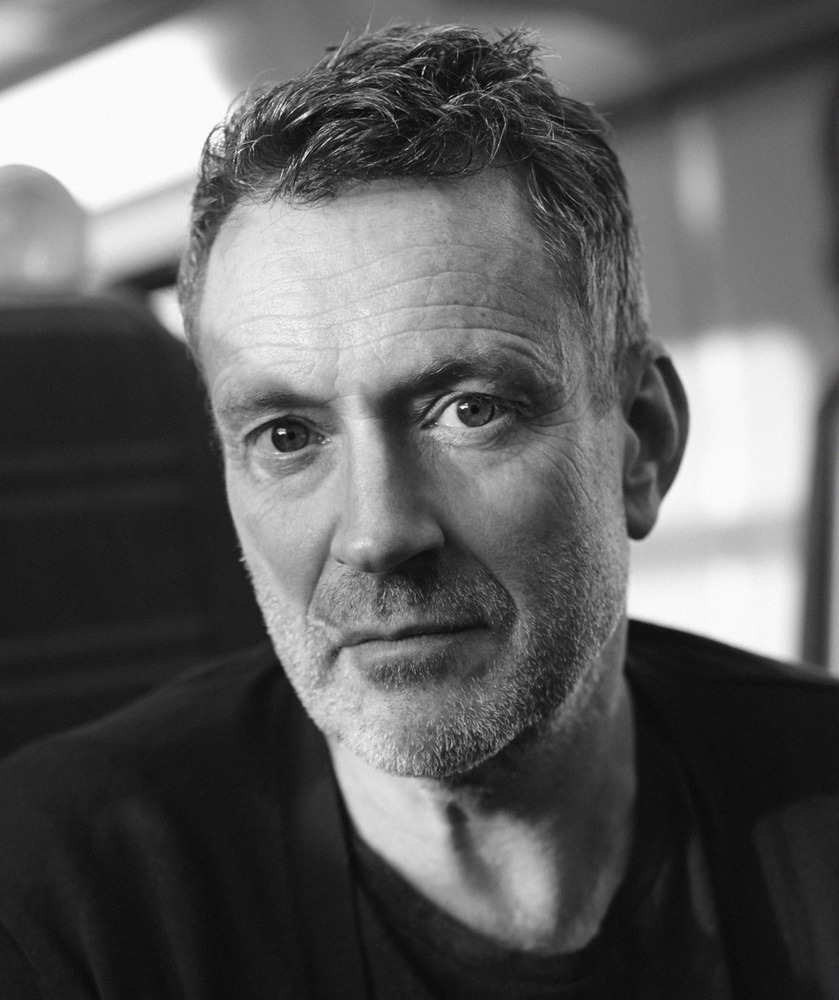
Фото - Hana Knizova →
Rockcult: Let’s talk about Fader. Your album First Light is a really powerful. How did you meet Benge and decide to create a joint project?
Arthur: The idea was on my manager Steve Malins. He’s also manager of Benge, as well as Hannah Peel, John Foxx and other people.
Rockcult: And Gazelle Twin.
Arthur: Yes. Steve suggested that we could get on and work together. Benge had made some music living in Los Angeles, and Steve sent me some of the instrumentals that Benge had been working on. And I immediately identified with them. And I thought that I want to write the songs. The album came together over period of year, maybe less. Then we started mixing it.
We only met once before we started creating music, and the second time we met when we started mixing. (laugh) So all the files were exchanged by we transfer, etcetera. Also we had e-mail discussions and a few phone conversations, but we got together the space to do what we need to do. It was an absolute pleasure, and I’m looking forward to do Fader again, actually.
Rockcult: Are you planning to play live with Fader, or it’s only studio project?
Arthur: For now it’s a studio project. That would be great to play live, but Benge is busy with Wrangler, and he’s doing other projects with John Foxx and numerous people. And I’m busy with Blancmange working on the Unfurnished Rooms and playing live, what we discussed earlier. I also have other project with Jez Bernholz from Gazelle Twin called Near Future, where we’re mixing album at the moment. So it would be nice to play live with Fader, but no plans at the moment.
Rockcult: What about modern electronic bands and artists? Are you interested in them?
Arthur: Yeah! I’ve just mentioned that Steve is a manager of Hanna Peel. She’s making some beautiful music. And you also mentioned Gazelle Twin. It’s only two names, but we have a lot of music around us, there is purely more electronic music around now than we were when we starting off doing it (laughs). So I listen to a lot of different music. Mainly electronic, and I listen to old and new.
In the end, Neil spoke with interest in more detail about his favorite modern bands and artists, listing The Soft Moon, LCD Soundsystem, Oneohtrix Point Never, Matthew Dear, Anna Meredith, Casiotone for the Painfully Alone and Actress.
He also added that his son is also a musician, and at the age of 17 he was invited to play in Saint Petersburg.
